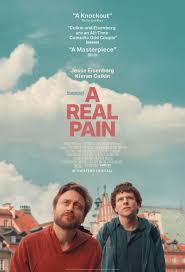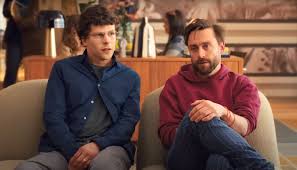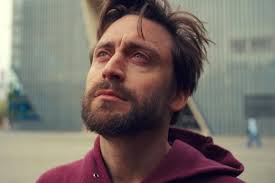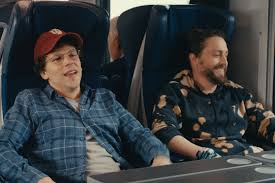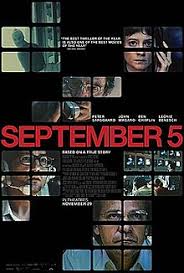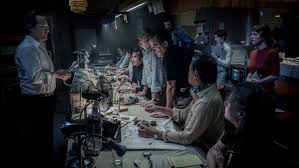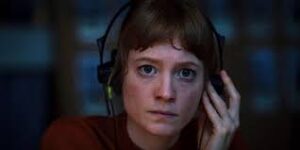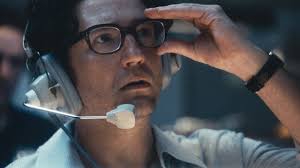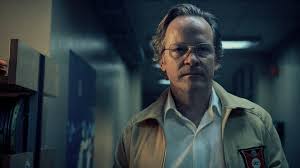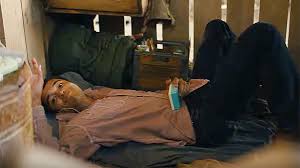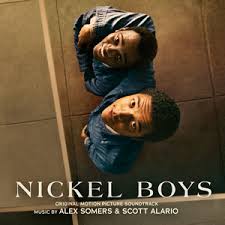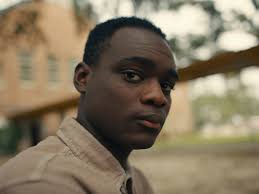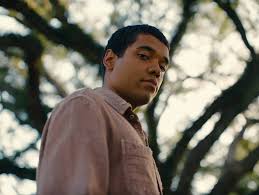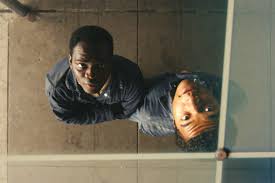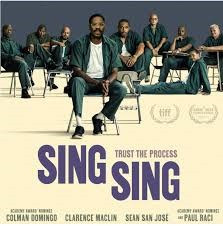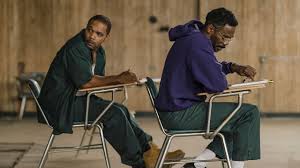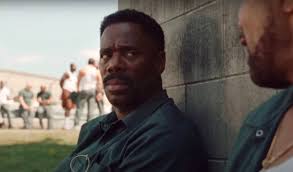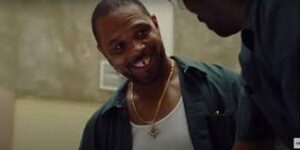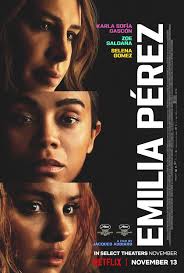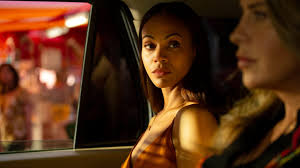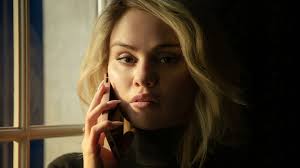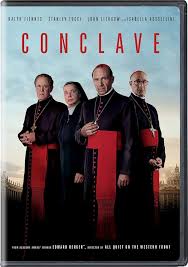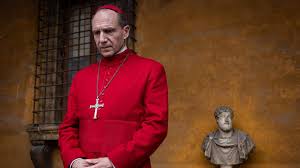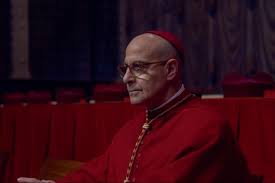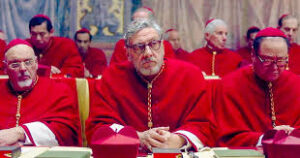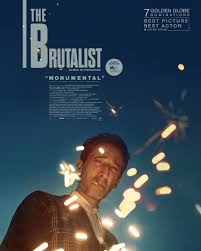
I’m going to come right out and admit it. I did not get this movie. To me, The Brutalist and Emilia Perez are the two most overrated movies of the year. I can give The Brutalist more of a pass because I can appreciate it as a work of great art, but for me, it was not great cinema. The Brutalist was like a moving painting. It was beautiful to look at, it required patience to understand its aesthetic, and the point it was making was way beneath the surface. As much as I can appreciate all that as a piece of art, it was not an entertaining film, and for me, it must be as entertaining as it is artistically pleasing in order to be considered great cinema.
The Brutalist was not entertaining
And look, if that’s your bag, then that’s great. If appreciating it as a work of art works for you, and you were able to see its brilliance in that, then you had a much more enjoyable movie-going experience than I did, and I’m happy for you. My overall review for The Brutalist can be found here, but this post will focus on the screenplay and why I feel the screenplay is as overrated as the overall film, and the screenplay serves as the foundation for what I see in the film’s issues.
The difference between “deliberate” and “slow”
I don’t mind when a film’s pacing is deliberate. Any regular reader of this blog knows that Stanley Kubrick is my favorite filmmaker, and there was never a mainstream filmmaker who was more deliberate in his pacing than Kubrick. Ironically, we will discuss Kubrick in another Best Screenplay nominee as well, but that’s for a future time. The Brutalist used many conventions that Kubrick used in some of his best films but borrowed more from one of his worst. For anyone who as ever seen Barry Lyndon, this film reminded me a lot of that. There were moments of great drama and intensity spread paper-thinly across canyons of time when nothing, literally nothing, happened. At a dragging three and a half hours with an intermission, The Brutalist was a slog. I might have liked it better if it was two and a half hours, but honestly, I doubt it. And the problems start with the screenplay.
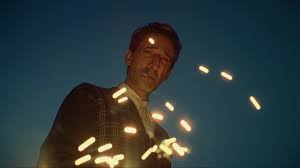
The film starts out promising, and the first act actually moves quite well for the first half hour. We meet Lazlo (Adrien Brody), arriving in New York City after escaping post-war Europe. He’s Jewish and also had to survive the Nazis, and he had to leave his wife, Erzebet (Felicity Jones), and niece, Zsofia (Raffrey Cassidy), behind. He goes to Philadelphia, where he moves in with his cousin, who owns a furniture business. His displays catch the eye of Harry Lee (Joe Alwyn), who hires them to renovate a room in his father’s mansion as a surprise for him. His father, Harrison (Guy Pierce) arrives to see the renovation and loses his mind with anger. Frustrated, Harry tells them he will not pay. Between losing out on the money and his wife’s cousin accusing him of flirting with her, Lazlo must move out. He moves to a church where he meets Gordon (Isaach De Bankole) where they both develop a heroin addiction. Lazlo gets his Call to Adventure when Harrison finds him after seeing his work in an architectural magazine and he wants him to build a community center paying homage to Harrison’s late mother.
Warning! Spoilers!
Rather than going through a synopsis of the rest of the story, I want to focus on a couple of key moments that led me to my determination that this screenplay is overrated. The reason the script and the film lack entertainment value is because they lack drama. There are dramatic moments, like when Harrison rapes Lazlo in the quarry, but too many of the moments bring us to the brink of something dramatic happening before pulling back and everything being okay.
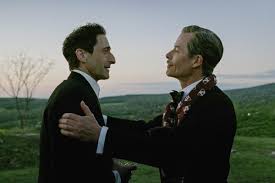
Before the intermission, Erzebet and Zsofia are able to come to America. Harrison and Harry welcome them into their home, where Lazlo is also staying. There are some moments of light tension, but later, there is a scene where Harry and Zsofia are alone on the grounds, and it appears that Harry could potentially assault her. It’s ambiguous, so it’s never clear that’s what he’s going to do, but it’s another moment of mild tension. But then nothing happens.
Another moment happens later. Erzebet, we discover when she arrives, has osteoporosis. She must take painkillers to manage the pain but runs out late in the film. Lazlo shoots her up with heroin, which helps, but then she almost overdoses. The keyword in that sentence is “almost.” And to be honest, by the time we got to that point in the movie, they had lost me. I didn’t care if she lived or died in that moment, so the moment lost all its drama anyway.
Those two moments are a nutshell case of why this script didn’t work for me. Combine that with the fact that Lazlo’s heroin addiction didn’t bring much drama to the story as well, and we are saddled with almost four hours of staring at a painting. I love looking at a piece of fine art just as much as anyone, but there comes a time to move on, and The Brutalist never moved on when it should have.
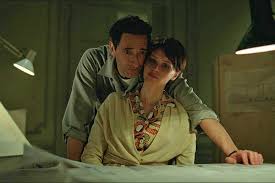
I don’t want to take anything away from what screenwriters Brady Corbet (who also directed the film) and Mona Fastvold accomplished in this film, and I don’t want to sound like I’m hating on it. The Brutalist was, by all accounts, a herculean effort. The script demonstrates meticulous attention to detail and a deep understanding of human emotions and the pathos of the overhyped expectations we demand of others and of ourselves. The film successfully got its messages across.
I said earlier that a great film needs to be entertaining. That is perhaps the wrong way to say it. What I need is to feel something. I need that emotional engagement to fully appreciate a film, especially one that must hold my attention for close to four hours. The Brutalist was devoid of emotion and, so, was devoid of emotional investment. The screenplay didn’t take advantage of the emotional scenarios it set up for itself, so I didn’t care one way or the other about anything that happened.
I needed The Brutalist to make me feel something, but instead, I felt nothing. If that was the point of it, that’s great, but it’s not my cup of tea.

